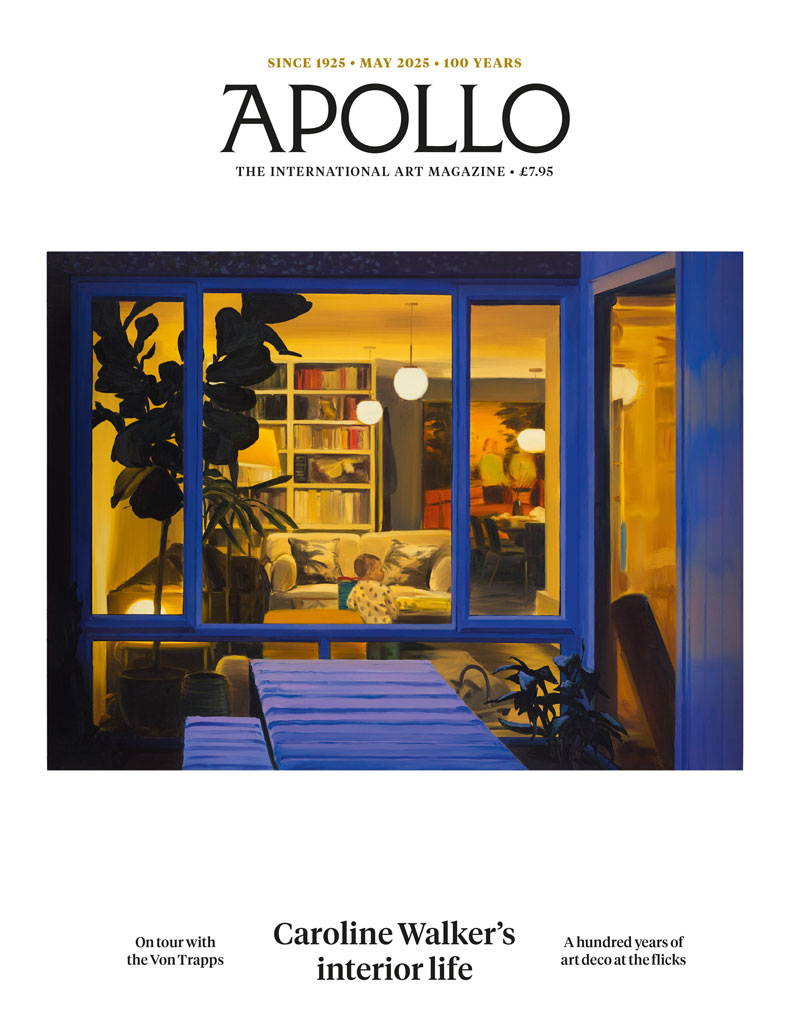The new director of the Frick Collection will be Axel Rüger of the Royal Academy of Arts (RA) in London. He has served as secretary and chief executive of the RA since 2019, after being director of the Van Gogh Museum in Amsterdam and its sister institution in the Hague, the Mesdag Collection. Between 1999 and 2006, Rüger was the curator of 17th- and 18th-century Dutch paintings at the National Gallery in London. Rüger faced testing times during his time at the RA, not least the Covid-19 pandemic; the Art Newspaper reports that the museum lost £1m a month during periods of lockdown, and in 2021 made more than a quarter of its workforce redundant. He takes over in the spring from Ian Wardropper, who has been the director of the Frick for 14 years, overseeing the refurbishment and extension of the museum’s Fifth Avenue mansion and the temporary move of the collection into the Breuer Building on Madison Avenue. The Frick will reopen on its Fifth Avenue premises in the spring.
The Netherlands has returned 288 objects that it looted from Indonesia during colonial rule. The items include jewellery, textiles, weapons and coins seized after the Dutch conquest of Bali in 1906. They have long been in the collection of the Wereldmuseum, Amsterdam, and were officially returned in a handover ceremony that took place on 20 September at the museum. Eppo Bruins, the minister of education, culture and science, decided to return the objects in line with recommendations made by an independent government committee. Bruins is a member of the New Social Contract (NSC) party, part of the right-wing government that came to power in July, led by the far-right PVV. The PVV had previously said that it opposed the ‘sell-out’ of objects acquired by the Dutch during the colonial era, but according to an expert interviewed in the Art Newspaper, the NSC insists that the country’s restitution policy continue. The Netherlands returned almost 500 looted items to Indonesia and Sri Lanka in July 2023.
A new law signed by Gavin Newsom, the governor of California, seeks to return a Nazi-looted painting to the heirs of its former owners, reports the Art Newspaper. The law, which came into effect on 16 September, is meant to undo a decision by the Ninth Court of Appeals regarding Rue Saint-Honoré in the Afternoon: Effect of Rain (1897) by Camille Pissarro, which stated that the Thyssen-Bornemisza Collection Foundation (TBC) in Madrid would hold prescriptive title. The work was owned by Lilly Cassirer until the Nazis bought it in a forced sale in exchange for an exit visa from Germany in 1939. The painting exchanged hands several times before being acquired by its current owner, TBC. Crucially, when TBC bought the work from the Baron Thyssen-Bornemisza they did not know that the work was stolen. The statute passed by Newsom ‘mandates that California law must apply in lawsuits involving the theft of art or other personal property looted during the Holocaust or due to other acts of political persecution’.
The Los Angeles County Museum of Art (LACMA) has postponed the opening of its new building to 2026. The David Geffen Galleries, designed by the Swiss architect Peter Zumthor and named after the media and entertainment mogul who pledged $150m to the building’s construction in 2017, will house LACMA’s permanent collection. After several delays, construction is scheduled to be completed by December 2024, but LACMA is now unlikely to open the building to the public on a permanent basis until 2026, reports the Los Angeles Times; it hopes to open the building for public programming for 10–14 days in mid 2025. The project has been spearheaded by the director of LACMA, Michael Govan, who has faced criticism for a lack of transparency around building designs and for cost of the project, as well as for reducing the overall gallery space available compared to the previous site. The project is budgeted at $715m.
The art and antiques dealer Giovanni Sarti has died. Born in 1943, he established G. Sarti Gallery in London in 1977; nearly 20 years later it relocated to a townhouse on the rue du Faubourg Saint-Honoré in Paris, and earned a reputation for its expertise in Italian paintings from the 13th to the 15th centuries and pietre dure from the 16th to the 18th centuries. According to a statement on social media by FAB Paris, Sarti was a key supporter of the restoration of the Resurrection (c. 1460s), a fresco in the town hall of Sansepolcro, Tuscany by Piero della Francesco. The artist was regarded by Sarti as ‘the greatest painter Italy has ever had’.














![Masterpiece [Re]discovery 2022. Photo: Ben Fisher Photography, courtesy of Masterpiece London](http://zephr.apollo-magazine.com/wp-content/uploads/2022/07/MPL2022_4263.jpg)






